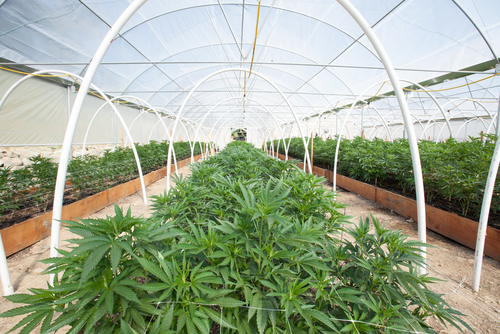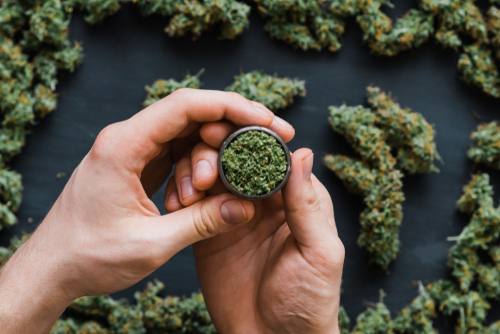When I hear the word ‘weed,’ I remember rummaging through my messy college dorm room in search of a Ziplock baggie with enough flower inside for a spliff. That word reminds me of Pink Floyd posters hung with multicolored tacks, feeling excited about a new South Park episode, and three-hour cases of the giggles as I made the first friends with which smoking rituals were established.
‘Cannabis,’ on the other hand, sounds like science. It’s new to our colloquial vocabulary; I hadn’t heard of this word until I was decidedly into weed and looked at its plant genus on a Wikipedia page. ‘Cannabis’ is something more serious sounding than ‘pot’–it doesn’t like like something you chug while hanging upside down at a tailgate. It sound like something that requires a degree of responsibility and esteem, even; ‘cannabis’ doesn’t sound like a habit one ought to outgrow upon adulthood.

Do these words mean two different things? No. They’re both terms for a cannabis plant rife with complex cannabinoids like THC, CBD and CBN. But calling it ‘pot’ or ‘weed’ versus ‘cannabis’ does bring to mind different associations, and have their own effects on the perceptions of others. I use the word ‘cannabis’ because I think it legitimizes referring to this thing by its truest identity: a plant.
Thinking about it as a plant helps strip away the socially-attributed associations of illegal contraband and deadend pastime. You aren’t considered a bad parent for eating tomatoes regularly. Enjoying the smell and effect of lavender isn’t considered an unhealthy addiction.
If one is talking about cannabis, one is given a tiny chance to demonstrate not only how they refer to this plant, but how they think about it. Merely proving that all kinds of “normal,” self-aware, functioning members of society aren’t scared to talk about or consume cannabis is the way to most effectively start changing closed minds. If we challenge people to think about it as something other than the drug their parents told them to stay away from, a different word altogether, you just might make a crack big enough for them to start questioning long-held stigmas.

The word ‘marijuana’ never really entered my vocabulary due to the clunky syllables, and considering the possibly malicious popularization of the word in order to malign Mexican immigrants, maybe it never was a proper name. The first legitimization of the word appeared in the Marihuana Tax Act of 1937, at a point in time where many believe the United States government intentionally coined a foreign-sounding name. Anti-immigration sentiment had been on the rise throughout the 1930s during the Great Depression, with so few jobs to go around in general. Some cultural critics assert that legislators selected a term like ‘marijuana’ for its associations with the Mexican language, thus feeding fear and xenophobia towards the plant and the Mexican people.
So, does it matter what we call this plant? Kind of. But as we’ve seen with other derogatory-turned-empowering terms, the meaning and power of words can transform over time, and have their own effect on the society in which the words exist.
(124)





Leave A Reply